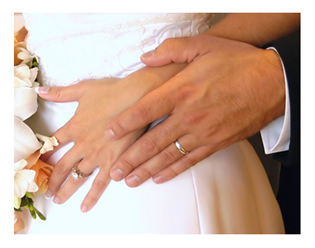Recovery. It’s a term we use when we set out to retrieve something gone missing, hoping to find it. It’s a term we employ following loss or illness, hoping to regain ourselves, battling back – or through – physical and emotional turmoil.
 We speak of recovery when talking about relationships – the process of recovering from a breakup or divorce.
We speak of recovery when talking about relationships – the process of recovering from a breakup or divorce.
Personally, when speaking of divorce I prefer “recovering” to recovery, recognizing that for many of us the process is perpetual, or accomplished in fits and starts. We make progress and slip back; our ability to “get over” this particular life event is a matter of context, time, support systems, and individual makeup.
One of my favorite writers, the provocative and witty William Quincy Belle – a pseudonym, in case you’re wondering – covers a wide selection of subjects on his own blog, and always with great style. He writes about marriage, divorce, love, sex, politics, and women’s issues.
Mr. Belle has kindly agreed to allow me to republish one of his posts here – on the subject of recovering from divorce.
Perhaps I am drawn to this piece of writing because I am currently examining my own reticence – or willingness – to let someone I love into my life more fully. Exploring the aftermath of divorce through another person’s eyes is instructive.
While Mr. Belle addresses the emotional recovering process, he does not specifically address the financial. I cannot help but wonder about the extent to which that piece of the equation can hasten healing or hamper it.
That aside, whether you’re single, married, divorced, or remarried, this column should offer considerable food for thought.
Divorced: It’s over. Or is it?
I’m browsing around the Net. One link leads to another and I end up at a blog posting about divorce written by a woman. She offered some interesting perspectives, some good tips, some personal stories and some painful memories. I look at the About to find out a little more about the author and discover that she has been divorced for over 12 years. I look back at the posting. As I was reading it, I had the impression the woman had only recently been divorced. 12 years? She was writing like it was yesterday.
When I was kid, I started building models and at some point in the process had to make use of a razor blade or an X-Acto knife to cut something. Of course, like all people, I had my share of accidents requiring a good dose of iodine and well stuck band-aid to stop the bleeding. Sometime afterwards, the image of that sharp blade easily slicing through my finger would flood back into my memory with crystal clarity and I would literally shiver. Yes, I would visibly shake for a moment. The finger cut rush?
Years later, I sort of figured out that some memories can be so great, so strong; they can be in fact engraved in memory with the crystal clarity of IMAX 3D and 5 channel stereo surround sound. We don’t ever forget them. They never fade. But when we do recall these memories, they come back with such strength; it is like they only happened moments ago.
Divorce: the gift that just keeps on giving.
Is this truly the most momentous, emotional, gut-wrenching experience anybody ever goes through? Like slicing your finger, is it going to make you literally shiver for years to come?
How long does it take to recover from a divorce?
 I hadn’t thought about this idea at all until an acquaintance said that he had read it took eight years. “Eight years?” I asked myself. What exactly does that mean? Recovery but recovery from what exactly?
I hadn’t thought about this idea at all until an acquaintance said that he had read it took eight years. “Eight years?” I asked myself. What exactly does that mean? Recovery but recovery from what exactly?
And so, I set out to investigate. It would seem that the “experts” have differing estimates and of course, the time necessary to recover depends on the individual in question.
Psychology Today – Apr 18/2010
How Long Does “Typical” Divorce Recovery Take? by Susan Pease Gadoua
One of the most common questions newly divorcing people have for me is, “how long will it take before I’m over this divorce ordeal?
My answer is always the same: “How long it takes to “recover” from a divorce depends on a number of factors, including how long you were together, how good the relationship was and how committed you were to your spouse, whether the divorce was a surprise to you or not, whether you have children together, whether you or your spouse are involved in a new relationship, your personality, your age, your socioeconomic status and on and on.
I liken the undoing of a marriage to trying to disentangle two trees that have grown next to each other for years. The more intertwined the root systems are, the longer it will take for the trees to go their separate ways.
Divorced at 50 – Nov 7/2011
How Long Does it Take to Recover from Divorce?
I recall my lawyer and counselor telling me that it would take five years to recover from divorce. “FIVE YEARS?!” I screeched. That seemed like a lifetime. In a sense they were right. It took 2 years to emerge from my shell and craft a new life, and another 3 years before I felt like myself again. I emerged as a new person with a new lifestyle, new friends, and new goals. This process took much reflection and time.
Divorce and The Five Stages of Grief
The 5 stages of grief or the Kübler-Ross model were formulated from working with terminally ill patients and have now been applied to other situations where we have to deal with a traumatic event. While the five are listed as denial, anger, bargaining, depression, and acceptance; it would seem that we do not all necessarily go through all 5 stages or go through them in any particular order. We are all unique in our own way and the sum total of who we are will dictate how we deal with our event.
Divorcée: I still miss my ex-husband… but my aim is improving.
Men always want to be a woman’s first love. Women have a more subtle instinct; what they like to be is a man’s last romance.
Build a man a fire, and he’ll be warm for a day. Set a man on fire, and he’ll be warm for the rest of his life.
“Don’t cry because it’s over. Smile because it happened.”
-Dr. Seuss (The first to raise their hand gets to tell the good doctor to take a hike.)
Divorce: Death Without a Body
I ran across this curious description of divorce which compares it to the death of a loved one. However several sources set divorce as the second most stressful life event after the death of a loved one. Considering that both divorce and the death of a loved one are life-altering events, it might seem callous if not stupid to try and rank them in relation to each other. However others have raised the question which led me to an odd observation.
 I have not done an exhaustive study with a double blind test involving a university sanctioned statistical methodology so take this as a warning that your olfactory system may start warning you of just what yours truly may be full of.
I have not done an exhaustive study with a double blind test involving a university sanctioned statistical methodology so take this as a warning that your olfactory system may start warning you of just what yours truly may be full of.
In a tongue-in-cheek fashion, I wrote “Divorce: Why I’m Better Off Dead” to humorously describe how a wife would be better off if I, the husband, died as opposed to going through a divorce. Please bear with me, I was trying to be funny and I sincerely apologised to anybody who had ever lost a spouse to either death or divorce as both were a painful upheaval in anybody’s life.
Nevertheless, as an observer, hopefully a somewhat astute one, I have had the distinct impression that divorce remains, as I jokingly call it, the gift that keeps on giving. The finality of death means we have to immediately come to grips (hopefully) with the loss of a loved one. Divorce means we lose a loved one but that loved one is still breathing and walking around. Hmmm, is this some sort of zombie apocalypse?
I re-posted my little attempt at “divorce humor” (a niche genre) on Open Salon and had a most revealing comment made by a woman who had been through both. She had lost husband number one to death and husband number two to divorce.
RomanticPoetess: Open Salon – Jan 17/2012
I have also been through both. They are completely different experiences. One takes your breath away but you always know you were loved, the other shakes your confidence in your own lovability. If I did not learn how to love and be love by the first one the second one would have been more damaging. Neither is recommended to try without the assistance of a strong support network.
Her words seem to describe what I’ve read countless times in various newspaper articles and blog postings. While death is tragic and death represents a loss, divorce is a personal issue that may never be resolved. After all, the issue to be resolved is with the person you’ve divorced. The likelihood of ever having some sort of meeting of the minds is just this side of nil for starters, especially if you’re not talking, but the resolution of the issue is understanding and accepting that somebody would fall out of love with you. Is that something which is just going to rattle your cage for the rest of your life?
Once is enough?
Mickey Rooney was married 8 times; Zsa Zsa Gabor 9 times; and Larry King 7 times. Elizabeth Taylor was married eight times to seven different men. (What!?!) Glynn Wolfe, a Baptist minister of all people, holds the dubious record of the most monogamous marriages: 29. Gee, with a little practice, does it get easier?
My blog: Optimism: we are hardwired to ignore defeat
We can hear a success story like Mark Zuckerberg’s of Facebook and imagine ourselves being rich one day and yet, upon hearing that the odds of divorce are almost 1 in 2, we can’t imagine our own marriages ever failing.
 CDC: Statistics for 2009
CDC: Statistics for 2009
Note: Divorce figures exclude data for California, Georgia, Hawaii, Indiana, Louisiana, and Minnesota. Populations for divorce rates also exclude these states.
Number of marriages: 2,077,000
Marriage rate: 6.8 per 1,000 total population
Divorce rate: 3.4 per 1,000 population (44 reporting States and D.C.)
Extrapolating, I end up with the number of divorces being 1,038,000 or 50% of the marriages. This is an estimate as 6 states did not report their divorce stats but is probably a fairly accurate picture of the current state of affairs.
But, marriage does offer benefits. According to some stats I found:
Nonmarried women have mortality rates about 50 percent higher than wives, and nonmarried men have mortality rates about 250 percent higher than husbands.
– Marriage and Public Health By Maggie Gallagher
50% higher for women, 250% higher for men? Good lord! You’ll die without me but I’m really going to die without you! Ha, ha!
Is there hope? Get back in the saddle?
A female blogger who was chronicling her life after divorce, raising kids, making a new life for herself as a single mom, met, as she described him, the “man of her dreams”. Now I didn’t and I don’t follow her closely but her blog and her Facebook entries seem to have transformed into a completely different perspective on everything, a “life is good” perspective.
She remarried. She and her children became part once again of an intact family unit. There is a man, a lover, a husband, a partner and a rock in her life and now divorce seems to have disappeared. Divorce is part of her past and her present is good, good and more good. I know nothing about her divorce. I have no idea of whether or not the Ex is involved or is banished persona non grata to the outer reaches of Mongolia, but whatever the case, the present, the current situation gives me the impression she has been transformed.
But, but, but, I see a caveat. Some do move on; some do remarry, but due to children, some are forced to co-parent with the Ex. Ah, you can rid of the t-shirt, but you can’t get rid of the genes. If the divorce was acrimonious, the co-parenting seems to merely be a continuation of that conflict. Unfortunately, the children sometimes end up as collateral damage, the targets of (not so) friendly fire.
To all those who live in high conflict situations, you have my sympathies. I wish you only the best. I could make a joke but I will remain serious in saying how exhausting and utterly debilitating it can be. I am surprised to discover just how much stress the human body can actually withstand. Then again, medical science may come back and tell us all we’ve shaved 5 years off our lives. Ha!
Final Word
 Eight years. Five years. Disentangling the roots of two trees. The 5 stages of grief.
Eight years. Five years. Disentangling the roots of two trees. The 5 stages of grief.
Do you ever “get over it” or like cutting your finger with a razor blade, does this remain indelibly engraved on your memory circuits forever? Are you condemned if you have to co-parent with…? (I’ll let you fill in whatever adjective or explicative you feel is appropriate.) Or will your life be magically transformed by an event as equally as earth-shattering as divorce like getting married again?
I’m sure somebody will bring up with a Zen-like smile how it is up to each of us to accept that the sun is going to come up in the morning; there is nothing we can do about it and the sooner we accept that fact, the sooner we can all move on to things we can change. You may now recite the Serenity Prayer.
In the meantime, we can all go back to those periodic moments where we pace up and down someplace by ourselves, gesticulating and talking out loud, rallying against fate as we work out in surprising detail and logical clarity the argumentation we will never get to present to anyone including the Ex and opposing counsel about how our view of the world is absolutely and one hundred percent correct, objective and without any personal bias.
[Death] takes your breath away but you always know you were loved, [divorce] shakes your confidence in your own lovability.
I have a small scar on my one finger where I cut myself when I was a kid. I’ve had that scar all my life. I will have it for the rest of my life. It’s healed and it’s faded with time. But it will always be there.
References
Google search: how long does it take to recover from a divorce
Wikipedia: Kübler-Ross model
The Kübler-Ross model, commonly known as The Five Stages of Grief, is an hypothesis first introduced by Elisabeth Kübler-Ross in her book On Death and Dying, which was inspired by her work with terminally ill patients. Kubler-Ross was inspired by the lack of curriculum in medical schools that addressed death and dying, so she started a project about death when she became an instructor at the University of Chicago medical school. This evolved into a series of seminars; those interviews, along with her previous research, led to her book. Her work revolutionized how the medical field took care of the terminally ill. Her five stages of grief have now become widely accepted.
Psychology Today – Jan 13/2010
Why is January Divorce Month? by Barton Goldsmith, Ph.D.
According to the courts, January is the month when most divorces are filed. It may be because the holidays are over or that people want a fresh start at the New Year.
Psychology Today – Jun 29/2011
Staying Friends After Divorce: A Case for Psychological Integration by Seth Meyers, Psy.D.
Most of you have probably had the experience of witnessing the forced encounter of two people who were once married in the past but who seem to have almost no connection with each other. I always wonder, Are you sure you were ever married?
…
Based on my clinical work over the years, I’ve found that the love never truly dies, no matter what came between the two individuals. It seems more likely that the love remains but is repressed to defend against strong, unpleasant feelings underneath.
The Good Men’s Project – Feb 21/2012
On Divorce, Co-Parenting, Learning to Love Your Ex, and Other Stuff By Mark Greene
In the beginning, shortly after the collapse of my marriage, I made a point of speaking glowingly of my former spouse. Especially around my still-married friends. I would march into parties and lead with lines like, “Sharron and I are working hard to co-parent Gus”. “It’s all going well”. But it takes time for a story like that to gain credence. For a while, people are wary of you; especially other parents. You are the living cautionary tale. You are the train crash. They watch warily as you have that second glass of wine. They’re waiting for something really bitter and nasty to slip out.
The Benefits of Marriage By Harry Benson
Across studies, mortality rates are 250% higher for unmarried men and 50% higher for unmarried women compared to those married (Ross et al., 1990).
The Case for Marriage by Linda J. Waite and Maggie Gallagher
Married people live longer as well. Single men have mortality rates that are 250% higher than married men. Single women have mortality rates that are 50% higher than married women (Ross et all, 1990).
Marriage and Public Health By Maggie Gallagher
Nonmarried women have mortality rates about 50 percent higher than wives, and nonmarried men have mortality rates about 250 percent higher than husbands.
This column appeared originally on June 13, 2012, at William Quincy Belle / Just On a Whim.
© D. A. Wolf
When it’s over, it’s over (as a lady once told me).
The day my wife walked out of the house (with most of my financial resources including retirement), I breathed freely for the first time in years. One of the best days of my life was when I received the papers that said our divorce was final. Of course it was a significantly better day when I met my future wife a couple of years after that. We live very modestly (details on request) and know that love and freedom are priceless.
p.s. re gender/marriage/mortality: Women generally avoid unhealthy or crazy men who are likely to die young. On the other hand, older men with resources may marry younger women for a nurse as much as for sex. And the former will likely generate a longer lifespan if the latter doesn’t kill them. .
I don’t know…as with any loss, we’re never the same.
I looked up “recover” in the dictionary to see if I agreed with the term as it relates to my divorce (which was 7 years ago):
Recovery – “to regain health, balance or control.”
Okay….then what I “recovered” from was my marriage. Divorce brought me better health – especially emotional and spiritual health; balance because I became much clearer on who I was and just how much strength I have on my own, and “control” because my life wasn’t stifled and shadowed by his mistakes. Over and over and over and over.
It’s my children who, I hope, will not always be recovering from the divorce. Especially because I initiated it. Because when you exert all your efforts for all their young lives to keeping them from harm, to set a divorce in motion that will fracture their nuclear family goes against the grain of what a mother does (you know, causing them a hurt – and a big one at that).
I’ve had to, and still do (but less often now) have to forgive myself and recover from that aspect of my divorce.
So much to think about in your response, Barb, thank you. These decisions are so personal, so individual, and we may never know which is the better route. The better route for our children may be one path, and for ourselves, another, but the two paths are intertwined.
I’m glad you have found your way to a place of greater emotional and spiritual health, and I hope your children are well on their way, too.
“If you’ve been married for seven years you have to kick for two.” — Lenny Bruce